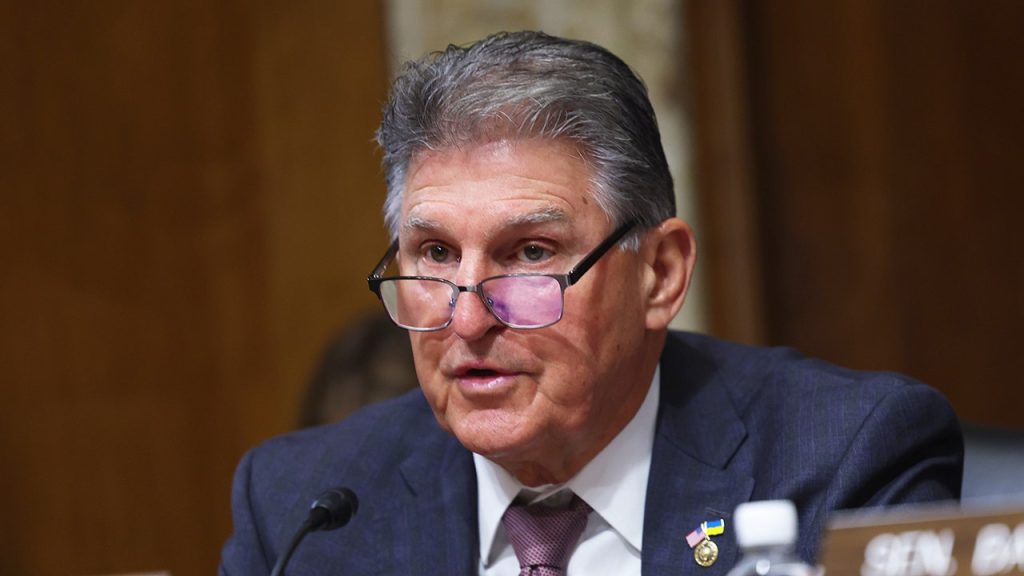Senator Joe Manchin’s recent departure from the Democratic Party, culminating in his registration as an Independent, marks a significant shift in the American political landscape. Manchin’s criticisms of his former party, characterizing it as “toxic” and out of touch with the concerns of everyday Americans, provide a glimpse into the growing ideological divide within the Democratic ranks and the broader political spectrum. His decision to distance himself from the party label reflects a broader trend of political realignment and the increasing difficulty of maintaining a centrist position in an increasingly polarized environment.
Manchin’s primary grievance with the Democratic Party centers on what he perceives as a drastic shift in the party’s focus. He argues that the party has abandoned its traditional emphasis on bread-and-butter economic issues, such as job creation and wage growth, in favor of a more progressive agenda focused on social and cultural issues. He cites issues like transgender rights as examples of this shift, suggesting that the party has become overly preoccupied with dictating personal lifestyle choices rather than addressing the economic anxieties of working Americans. This critique resonates with a segment of the electorate that feels alienated by what they perceive as a disconnect between the priorities of the political elite and the everyday struggles faced by ordinary citizens.
Furthermore, Manchin contends that the progressive wing of the Democratic Party is out of touch with mainstream American values and political sensibilities. He argues that the country is not moving towards the left, as progressives believe, but rather remains largely centrist in its political orientation. This disconnect, he suggests, has contributed to the party’s declining appeal among working-class voters and its struggles in winning elections in more conservative-leaning regions. Manchin’s critique underscores the challenges faced by the Democratic Party in balancing the demands of its progressive base with the need to appeal to a broader electorate that includes more moderate and conservative voters.
While Manchin’s criticism focuses primarily on the Democratic Party, he also acknowledges the shortcomings of the Republican Party, particularly its stance on gun control. He criticizes Republicans for their perceived extremism on the issue, arguing that their unwillingness to consider any form of gun regulation is just as problematic as the Democrats’ calls for outright bans. Manchin advocates for a more common-sense approach to gun control that balances the Second Amendment rights of gun owners with the need to ensure public safety. This critique highlights Manchin’s commitment to a more moderate, bipartisan approach to policymaking, a stance that has become increasingly rare in the current political climate.
Manchin’s decision to leave the Democratic Party represents a culmination of his long-standing frustration with the party’s direction and his desire to chart a more independent course. His moderate stance on many issues, combined with his willingness to work across the aisle, has often placed him at odds with both the progressive and conservative wings of American politics. This independent streak has allowed him to play a pivotal role as a swing vote in the Senate, often influencing the outcome of close legislative battles. However, it has also made him a target of criticism from both sides of the political spectrum, with some viewing him as an obstructionist and others as a compromiser of principle.
Looking ahead, Manchin’s decision to become an Independent raises questions about his future political trajectory and the potential impact on the political landscape. While he has not ruled out running for re-election, his departure from the Democratic Party leaves his political future uncertain. He could choose to run as an Independent, potentially drawing support from voters disenchanted with both major parties. Alternatively, he could align himself with a third party or even consider joining the Republican Party. Regardless of his ultimate decision, Manchin’s departure underscores the growing dissatisfaction with the two-party system and the increasing appeal of independent and third-party options for voters seeking alternatives to the increasingly polarized political landscape. His move also signals the ongoing realignment of political forces in the United States and the ongoing struggle to define the future direction of American politics.

